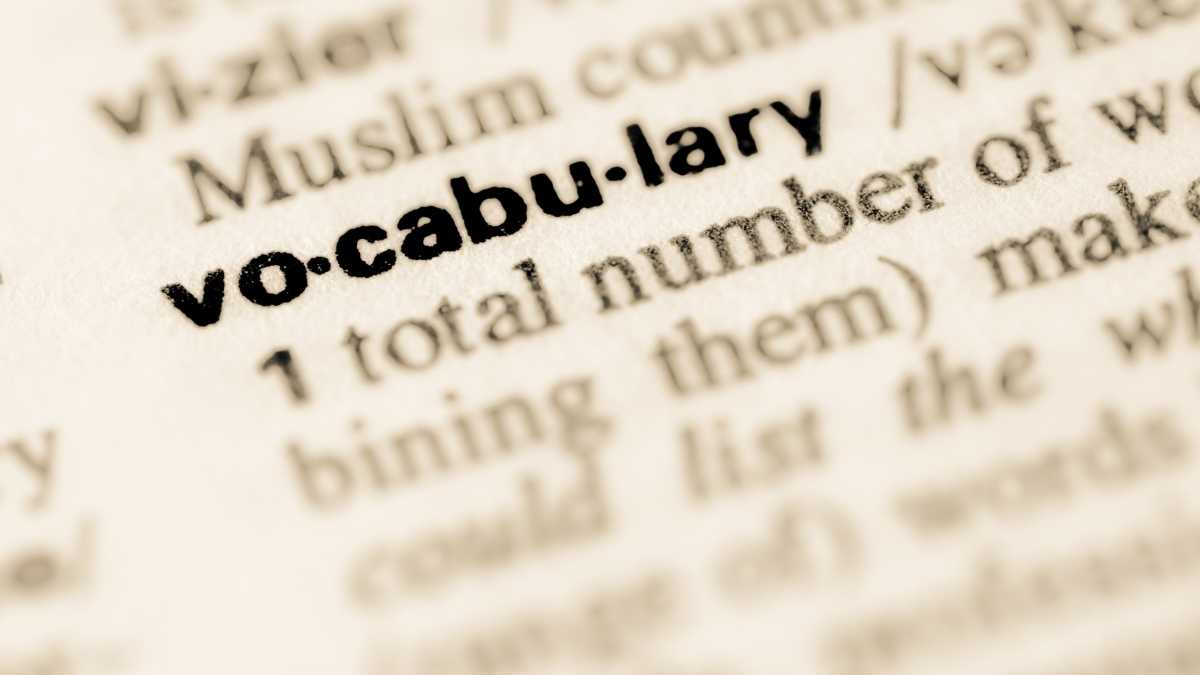Table of Contents
- What is vocabulary?
- How many words are there in English vocabulary?
- How reading improves your vocabulary fast
- From dictionary to thesaurus
- What books should I read to improve my vocabulary?
- Will learning vocabulary hinder my reading progress?
- Learn word variations for better vocabulary
- Other ways to improve your vocabulary
- Concluding remark
You may wonder: what is the fastest way to improve vocabulary?
There are many ways you can bring your vocabulary knowledge to a new level.
Based on my own experience, the fastest and most effective way is through reading.
Reading exposes you to new words and phrases, which helps develop your grammar skills. It’s also a great tool that can expand into other learning experiences beyond learning mere words.
This article will discuss in depth how reading will improve your vocabulary fast while at the same time providing expanded opportunities for you to continue improving your English in general.
We will also discuss some ways to optimize your reading experience so that you can further accelerate the impact of your vocabulary enhancement by putting what you learn into practice, including immersing new words into your daily English conversation and writing.
What is vocabulary?
Vocabulary is a collection of words and phrases that we associate with a specific subject matter. In the simplest term, vocabulary is a list of words.
Someone with a good vocabulary means that they know a lot of words. Sometimes their choice of words in conversation or writing leaves us in awe. Don’t we want to be like them too?
Hence, improving your vocabulary is highly beneficial as you can’t always guess what people want to say or the next sentence you will read, so it’s good if you know some different words.

How many words are there in English vocabulary?
Vocabulary is huge! The English language has roughly half a million words altogether, including words not documented in the dictionaries. There is so much to learn.
The Merriam Webster Dictionary and the Oxford English Dictionary reported that more than 470,000 words are currently indexed in both dictionaries. Note that the number continues to increase as more words are being included every year.
Out of these big numbers, an average English native speakers know between 20,000 and 40,000 words, representing a small percentage of only 4%-9% of all documented words.
How reading improves your vocabulary fast
I have explained earlier that reading has proven to be the fastest and most effective way to improve my vocabulary. And I am adamant that reading can do you wonder too in taking your vocabulary knowledge to the next level.
Reading exposes you to a wide range of new words and phrases. Regardless of genres and reading materials, you will discover more and more words, and reading will become more enjoyable as you form more comprehension faster with the improvement in vocab.
But discovering a new word in the vocabulary will not do much unless you do something about it. We are talking about actions.
Once you come across a new word, understanding its meaning and using it in different contexts is crucial.
How do you do this?
The simplest way to understand a new word is through dictionaries.

During my early years in learning English, I carried a thick and heavy, printed dictionary (the Longman Dictionary I inherited from my elder sister). This experience was way back 20 years ago when the Internet was still largely inaccessible to me.
Today, that Longman Dictionary is still on my bookshelf, except that I hardly use it anymore. Instead, I use online dictionaries to check the meaning of new words as it is faster and more convenient. Yes, after more than two decades, I am still learning and improving my vocabulary.
[I am not an English native. I learn new words all the time, even today. If you are like me who wants to improve your English writing, read my article here].
I also installed a couple of dictionary apps on my mobile phone. In this time of Internet connectivity, learning things and getting new information is easy. Everything is accessible within a few clicks. Even Google can give you the meaning of words quite fast.
But I suppose how you use the Internet depends on your preferences. You can use apps, mobile phones or simply desktop browsers to learn new words.
I also notice interesting words that I intend to use later in my writing (as a copywriter and marketer, I write a lot). I usually write on my notepad. Sometimes, I also write on the Google Doc app when I am on the go.
Some of the new words are super enticing. We call them “power words,” i.e., words that highly influence our sentence expression and invoke certain emotions. I have listed 33 power words you can use in your email (which can also be used in other documentation such as proposals, business reports and so on.
As you learn and practice, you will recognize the words and phrases more frequently than before. This practice is very beneficial because reading comprehension improves as you are exposed to new vocabulary repeatedly.
From dictionary to thesaurus
Another good way to improve your vocabulary fast is using a thesaurus.
What is a thesaurus?
A thesaurus is a dictionary of meaning or synonyms (you can also find opposite words or antonyms). A thesaurus enables you to find alternative words for a particular vocabulary entry.
For instance, using a thesaurus, you can learn that the word “improve” can also mean, among others, “enhance,” “advance,” and “develop.”
You can see this result by typing the word “improve” into a thesaurus application such as Thesaurus.com.
From the example above, we learn that one new word can expand to multiple words, illustrating the beauty of a thesaurus and its vast potential in accelerating your vocabulary learning.
I love the thesaurus. I use a thesaurus while writing this article as I want to expand the choice of words into a richer range.
What books should I read to improve my vocabulary?
Now, here comes the fun part.

Choose your favorite genres to read – fiction, academic, business, biographies, self-help and so on. Don’t read stuff because you feel it might be useful for you. Read because they interest you and make you feel good.
My genre of choice is always non-fiction, particularly self-help and biographies (and autobiographies).
Choosing books you love can keep you reading for hours, and it will be easier for you to make (and maintain) reading a consistent habit. Sometimes, when a book was so captivating, I could finish reading the entire book in one single sitting.
There were also occasions when I was too drowned in reading to complete a book with 500+ pages overnight.
Additionally, it would help if you chose reading materials relevant to your profession or area of interest, such as customer service, technical, marketing, business development, etc.
This way, you will read more useful words and phrases directly related to what you do at work (and not the nonsense ones).
I am always fascinated reading about different personalities (heroes and villains), their childhood, and what makes them who they are.
So, I read a lot about Steve Jobs (I bought at least five different books on Jobs), Gandhi, Elon Musk, Tommy Hilfiger, Obama and Mandela. I even have a couple of books on Hitler and Pablo Escobar.
If you wish, you could also read e-books instead of printed books. E-books are convenient since they are cost-effective, accessible, and can be read anywhere.
If you want to enjoy reading books without worrying too much about the price tag attached to them, why not borrow a book from your friend or family member? You can also borrow books from a local or university library.
I don’t borrow books a lot as I prefer to buy my books and I do not need to worry about forgetting to return the books. But then, it is a healthy option.
Other than books, allocate your time daily to read news, articles, blogs and shorter pieces. Spend at least 15 minutes per day reading things that interest you – politics, world affairs, sports and hobbies.
Will learning vocabulary hinder my reading progress?
Well, it’s quite the opposite.
Learning new words through vocabulary requires pausing now and then since you need to look up the dictionary. Initially, you may feel a little bit discouraged, having to stop periodically, losing the reading momentum.
Don’t fret too much about the drop in your reading momentum. This scenario is part of the learning process that will only make you a better reader.
As you read more and improve your vocabulary, the time you spend looking up words will progressively decrease. Your reading speed will also significantly increase.
Also, periodically review and reflect on how you have been progressing in your vocabulary learning.
In the long run, reading and learning new vocabulary will simultaneously improve your reading speed, fluency and comprehension.
Learn word variations for better vocabulary
Any English word starts with a root word.
A root word is the basic or the simplest word you take off of to form many other words.
You can also combine root words with prefixes and suffixes to form different word variations. A root word can also expand (or own its own) to represent a verb to a noun, an adjective, or a different part of speech.
For example, the root word “improve” can be extended to become “improvement” or “improving.”
From just a single root word, you can understand and learn how to use in can use this word in various contexts and tenses. For example, the root word “understand” can be used in the following phrases:
- He can understand his teacher’s accent well
- Julie has excellent knowledge and understanding of ancient Asian history
- I like Mr. Joachim’s English lesson, which can be easily understood
Other ways to improve your vocabulary
While reading has been proven to be the fastest and single most important contributor to my vocabulary improvement, other ways help me in my journal in becoming better at learning new words.
I would highly suggest you explore these other methods and techniques. You might find some of these tips will suit you best, depending on your circumstances.
Some of the methods that can also work effectively in improving your vocabulary include the following:
- Watching television (series and movies) and learning words through the subtitles. I like Hollywood movies and British dramas. In addition to learning words, I can also learn how the actors (or actresses) pronounce the words and how these words are expressed to bring about certain cinematic moods.
- Listening to the English radio stations. I mostly listen to pop and easy genres. Announcers in pop-genre radio stations usually talk faster and more energetic, while those manning easy channels talk slower and easier to understand. Choose your preferred style.
- Watching various YouTube channels and videos and paying attention to the choice of words and jargon used. Today, I watch YouTube daily. My favorite videos to watch are motivation, book reviews, home decor and blogging. YouTube also has automated subtitles (though not always 100% correct, they certainly help).
- Speaking English whenever possible, including at home with my wife and office with colleagues (despite not being in a native English environment). If speaking English is new to you, you may find it a bit awkward when you’re just starting. But as time passes by, things will get more natural. Put your new vocabulary into practice while speaking.
- Subscribing and listening to podcasts. I subscribe to a few podcast channels that teach people English communication and writing. One of the useful podcast channels I can recommend is the BBC English Learning channel.
- Sending text messages and emails in English. I have a social group (Whatsapp) of two people who only use English as a communication medium. When forming the group, we decided that we would use only English throughout the communication channel.

Concluding remark
I hope by now you can appreciate the vast potential of reading towards enhancing your vocabulary knowledge. Reading has been proven the fastest way for me to improve my vocabulary, and I hope it can be the same for you.
My last advice is that, rather than looking for speed, look for progress. Improving your vocabulary and your English, in general, is a lifelong learning process. It is a marathon, not a sprint. You just don’t become excellent overnight.
Indeed, reading is one of the best ways to fully immerse yourself into the language that helps us establish stronger credibility. Reading does have an incredible impact on how much English knowledge we obtain throughout our lives, no matter who we are or where we live.
Reading offers an opportunity for you to learn new words and use those new words in sentences and improve the accuracy of your writing and conversational skills.
Improving your vocabulary will also alleviate your standing and will push you far in your career. As your English level advances, more opportunities will come knocking on your door in the form of job offers, promotions and exposure with international partners.
If you want to improve your vocabulary fast, certainly reading will help you a long way. Read more books, and choose genres that appeal to you so that your reading motivation remains high to learn even more.

7 thoughts on “What is the Fastest Way to Improve Vocabulary?”